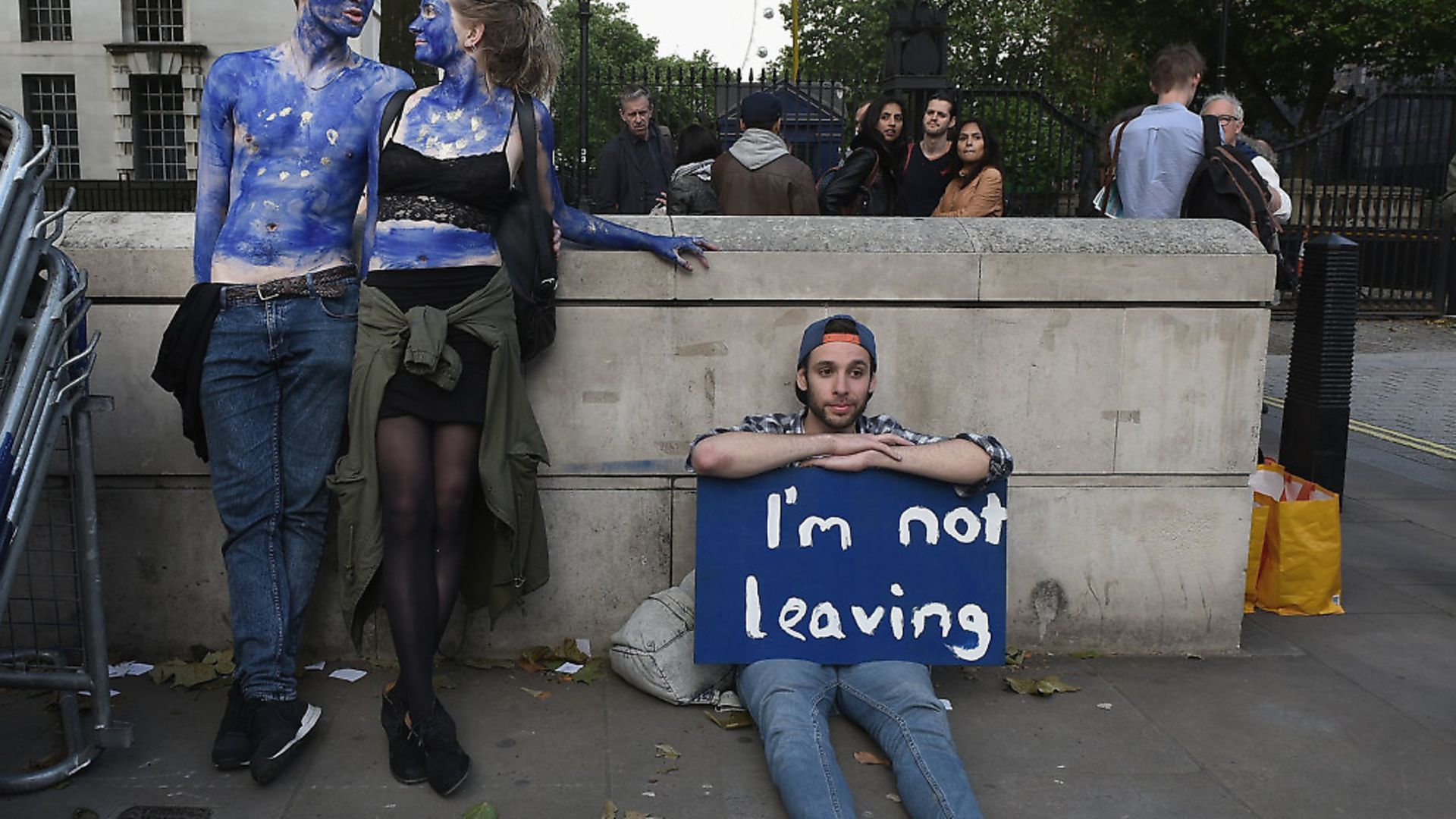
The year of Brexit AKA The year you’ll want to forget
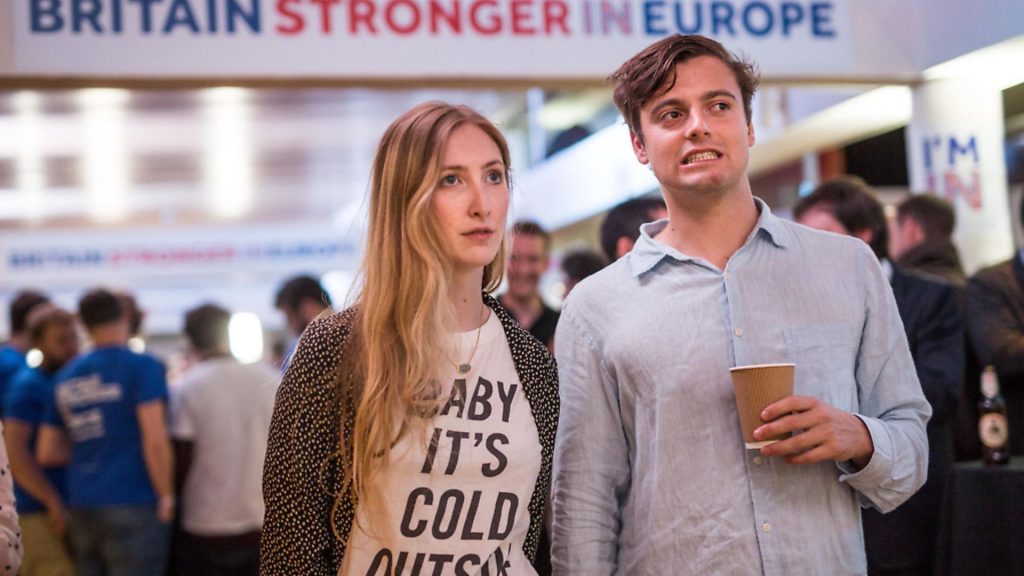
When studying for A Level in my small Cornish grammar school long ago I encountered a sentence by G.M. Trevelyan which sent a tingle down my spine. Writing about the 18th century dynastic War of the Spanish Succession, the great Whig historian observed something to the effect that ‘only a century earlier Spain had been the terror of the nations which now fought over its division’. ‘Oh dear,’ I wondered, ‘will that be post-imperial Britain’s impending fate too?’
That was in 1962 and periodically over the years I have had reason to recall it. Never more than during the Year of Brexit. In the twelve irresolute months since the June 23 referendum Britain’s triple alliance of voters, opinion formers and elite leadership seems to have locked itself into a dangerous downward spiral, one that threatens the stability and security that most of us have taken for granted since the hard-won peace of 1945. Where are we heading? And whom do we trust to lead us there? One year on from the Brexit vote, answers are not yet visible, only a cacophony of conflicting advice, mostly unconvincing.
Was the slim 52:48% majority to leave the European Union the fateful misjudgement? Of course not, though hindsight may eventually decide it was what the Cassandras of climate change like to call a tipping point, either for decline or (so its champions still insist) for an invigorating national revival. Myriad events and decisions taken over recent decades contributed to June 23’s complacently unexpected outcome. But to many observers the pace of miscalculation had intensified in the decade or so since 2003 when Britain became embroiled with the United States – but not the UN or NATO – in the invasion of Iraq. Dwindling public confidence was dramatically reinforced after 2008 by the financial crisis that crippled many over-mighty western banks and intensified the job insecurity long felt by vulnerable citizens.
With the final passing of generations tempered by the horrors of two world wars, a global depression and the long Cold War, the West’s less mature leadership suddenly sounded callow, inadequate to the new economic and political challenges it faced. Blair and Brown, Sarkozy and Hollande, Cameron and Osborne, Ed Miliband and Italy’s Matteo Renzi, George W Bush and even Barack Obama, bright star of the flickering liberal order, were deemed to have failed in varying degrees or not succeeded at all. Despite 12 years in power – more than she wanted – Germany’s chancellor, Angela ‘Mutti’ Merkel, remained resolutely lashed to the storm-tossed mast. But she was famously cautious, reluctant to be seen as the leader of Europe, let alone of the West. Where was the US?
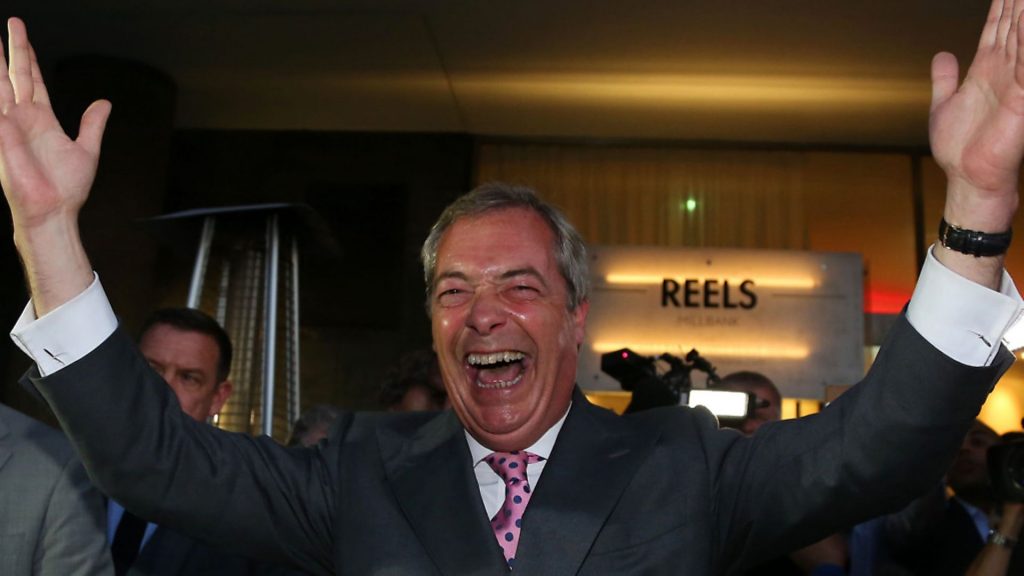
That the White House had been won in November 2016 by the Manhattan property tycoon and bankrupt casino baron, Donald Trump, inexperienced, narcissistic and hyper-volatile, embodied public distress, both among those marginalised, angry citizens who voted for him and those who greatly feared what he might do. Trump’s unlikely triumph had out-Brexited Brexit, as he boasted himself, though not in quite the sense he intended. Suddenly ‘strong’ leaders, authoritarian nationalists like Vladimir Putin, Turkey’s Erdogan and China’s Xi, had become the ones with high domestic poll ratings – not least because they unflinchingly suppressed dissent. Was that Trump’s intention too? And what sort of strong leader would the technocratic centre’s conspicuous (and also unexpected) success, France’s reformist Emmanuel Macron, turn out to be?
Brexit Britain was part of the new instability. No real clarity had emerged from the referendum campaign, marked by shabby half-truths on both sides, the mendacity of the two Leave camps and their Fleet Street allies being more visceral and less scrupulous than Remain’s lacklustre effort. For his part David Cameron had promised to stay on as PM, threatened to trigger Article 50 immediately (so did closet-Brexiteer Jeremy Corbyn) and warned of a rapid economic recession. None of this proved to be true either. Cameron did a last disservice to country and party by immediately resigning on the morning of his defeat and popping the keys to No 10 through the letter box.
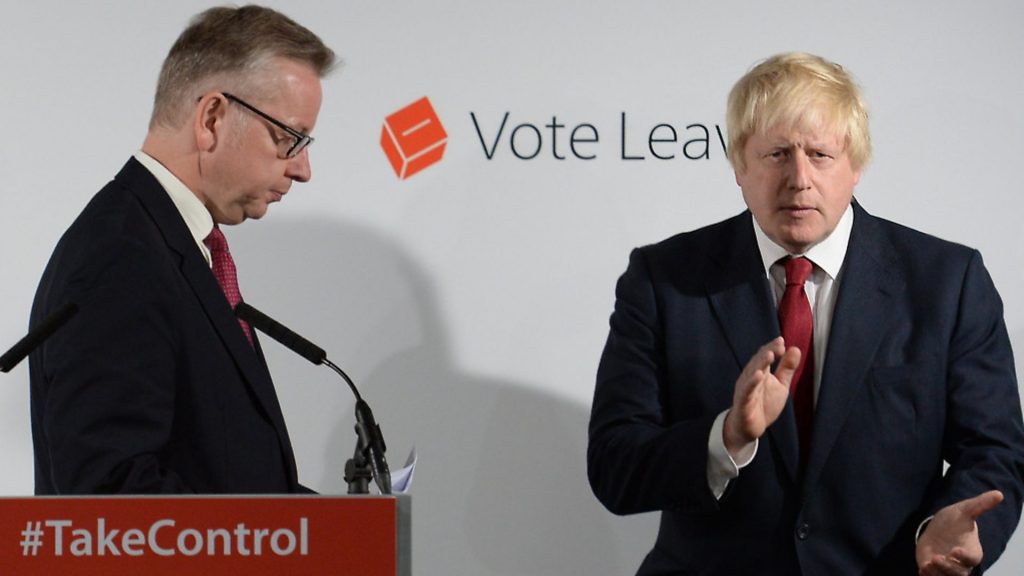
Hard though it now is to remember that those standing for the vacant leadership included Liam Fox, cabinet new boy Stephen Crabb, Andrea Leadson and Michael Gove, a self-substituted candidate after committing Boricide on the much fancied ex-mayor); plus Theresa May. It was a bad example of Snow White and the Five Dwarfs. By July 11 all five were eliminated or had withdrawn in favour of the largely untried May before party members could get to chose between her and runner-up Leadsom, a strong Brexiteer with more ambition than sense.
Back in 2005 Cameron had won the Tory leadership by outflanking David Davis, a genuine pro-Brexit MP, by promising to end the party’s membership of the Euro-conservative group (EPP) in Brussels. In 2016 the nominally pro-Remain May launched her campaign by saying ‘Brexit means Brexit’. She sacked George Osborne as chancellor and in August made clear that unfettered UK control of immigration and the judiciary would take priority over economic calculations in the coming negotiations, despite being the Home Secretary who for six years failed to achieve Cameron’s pledge to cut net migration to the ‘tens of thousands’.
Level-headed Philip Hammond became chancellor, Boris Johnson – to his own astonishment as well as everyone else’s – was rescued to be Foreign Secretary. Along with Liam Fox (international trade) and the veteran David Davis, the new ‘Brexit secretary’, he was dubbed one of the Three Brexiteers, a late switcher to the Leave camp for opportunist reasons, yet ‘most trusted’ by swing voters: it was Boris Wot Won It. But it was ever more apparent that he was ill-equipped to handle the detail, let alone the hard work. That would fall to Davis (68), an MP since 1987 and Minister for Europe (1994-97). Born to a single mother, raised on a council estate, he got to Harvard the hard way via the Territorial SAS and a computer science degree, and became a senior Tate & Lyle manager. A natural member of the Commons Awkward Squad his was as different a CV from Boris’s effortless superiority as could be imagined.
Cameron had chosen to interpret the close referendum result as an unqualified vote to end Britain’s 43-year relationship with Europe of the 27. It need not have been so, but UKIP’s then-leader, Nigel Farage (having expected defeat, Farage had already demanded a second vote if Remain won by as little as 52:48%), and the Daily Mail – setting the media tone yet again – poured protective concrete around that interpretation, threatening any MP, judge or public official who suggested otherwise. Backed by the Mail as a principled, provincial conservative, May herself became a born-again Hard Brexit champion.
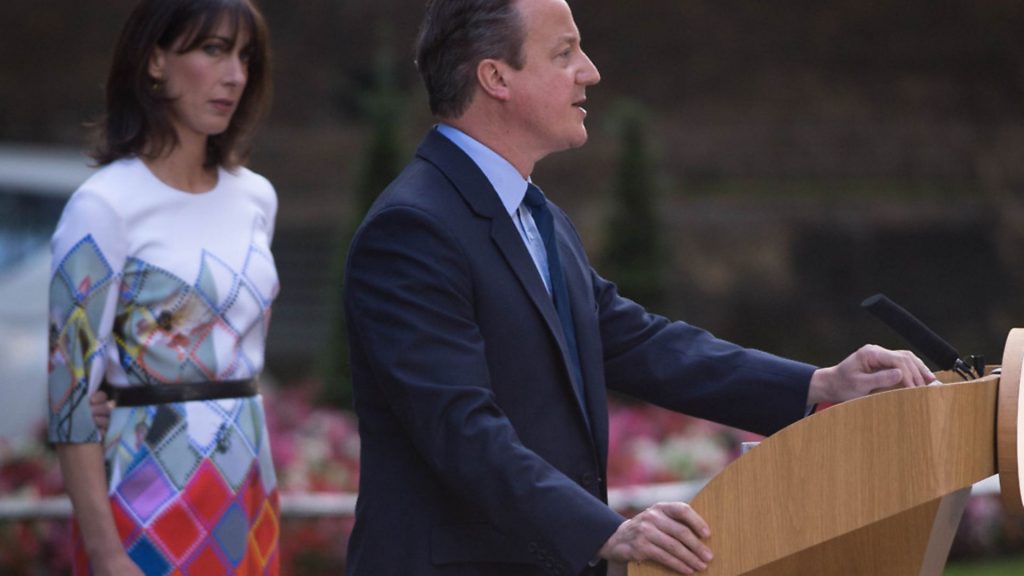
‘Sabotage’ by the ‘Remoaners’ thus became the dominant narrative of a campaign which had thrived on scapegoating its enemies and was otherwise at a loss to find one to replace ‘Brussels’. Preoccupied with the latest hack-handed challenge to his leadership, itself triggered by his calculated feebleness in promoting Remain (he had been a lifelong Brexit man) Corbyn went all with most of this. He stayed characteristically vague about immigration – unpopular with core Labour voters – but demanded continued EU levels of protection for workers rights.
An opposition not focussed on itself could have done much better at holding dithering ministers to account. But MPs felt intimated, as they were meant to feel. It fell to Gina Miller, variously described as a philanthropist, campaigner, investment manager and ‘former model’, to spearhead the most effective way to entrench what the Brexit campaign had supposedly been all about, the right of a sovereign British parliament to enforce accountability on a remote executive government. But Miller’s target was not Brussels bureaucracy, but the UK government in Whitehall.
In June 2016 she hired the cut glass London law firm of Mishcon de Reya to challenge the May cabinet’s declared intention to use treaty-making prerogative powers to invoke the Article 50 provision of the Lisbon treaty to withdraw from the EU. Since individual rights – like the freedom to move and work across the EU – were thereby placed in jeopardy only parliament could revoke those rights, Miller’s legal team argued. In November the High Court upheld her claim and shared the torrent of abuse now directed against such flagrant ‘sabotage’ of what was grandly – if imprecisely – described as ‘the will of the people’, though there was no visible agreement as to many details. Crucially they included trade-offs on the single market and customs union, about which the cabinet was divided.
When the full Supreme Court ruled by eight to three in support of the lower court in January 2017, the judges were denounced as ‘Enemies of the People’ by the oligarch tabloids. That too was a frightening moment which hindsight may deem to have been a significant erosion of the independent judiciary. With ill grace the government produced an EU (Notification of Withdrawal) bill – eight lines and 137 words – to which both Lords and Commons attempted to amend and impose restraints on May’s freedom of manoeuvre. Amid further intimidating noise, it passed on March 16, allowing May to meet her own deadline and trigger A50 on March 29. The two-year Brexit clock had begun ticking, but towards what exactly?
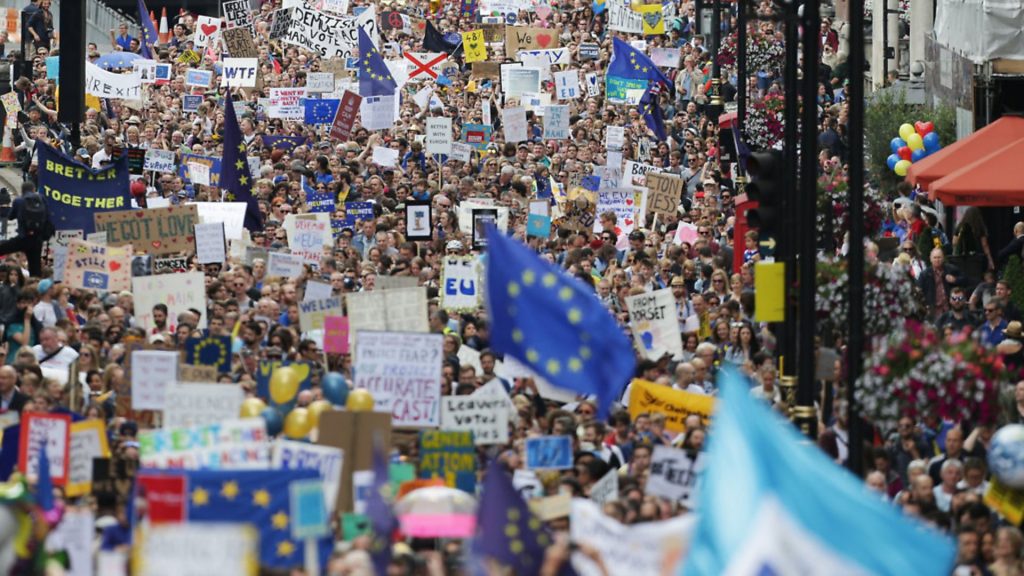
Ministers remained maddeningly vague and obviously divided. As European negotiating teams were established to hammer out a common platform for 27 member states, the Council, Commission and Parliament, Boris Johnson’s breezy ‘cake and eat it’ strategy looked increasingly unhinged. Travelling on trade missions to countries Britain hopes to do deals with – one day – Fox went quiet. In January Sir Ivan Rogers, Britain’s ambassador to the EU, quit over ‘muddled thinking’ among ministers. He would not be the last to leave No 10 where May’s chiefs of staff, Fiona Hill and Nick Timothy, were running a highly controlled and centralising regime. City executives trying to explain the complex Brexit choices complained that too many ministers preferred to out their fingers in their ears than have their career-boosting prejudices unpicked. Arch troublemaker, Christopher Booker, founding Private Eye editor and Sunday Telegraph pundit, ticked most Brexit boxes. But even he was aghast at ministers’ refusal to accept what a ‘no deal is better than a bad deal’ outcome could mean for UK trade.
Successive British governments had long taken a condescending view of their continental neighbours, their economic, social and political habits. But the lofty view was often reciprocated by senior officials in Brussels, scornful of barbaric Anglo-Saxon ways, rapacious and puritanical at the same time. Mistakes on both sides were obvious to everyone except those making the mistake. Yet in the deepening crisis of popular legitimacy they had so much in common. Some visible themes were shared by all the distressed states, others peculiar to one. Loss of empire was a matter of dates. Spain, reconquered from the Islamic crusaders 200 years before G.M Trevelyan’s focus on 1700, had been turned into modern Europe’s first major global empire, long lost. In the 1930s it succumbed to fascism in a crisis of modernisation, recovered and joined the EU, only to see Basque and Catalan separatism reassert itself. Would Madrid’s hard line response to Barcelona prove wiser in the long-term than London’s permissive 2014 gamble on a Scottish referendum? That remains an outstanding question.
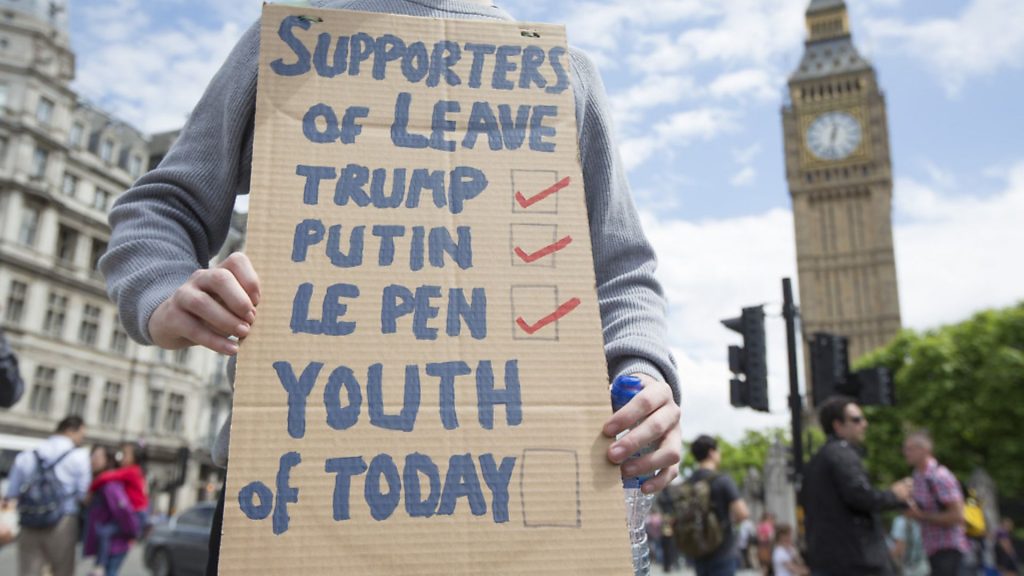
Germany’s imperial ambitions had been thwarted inside Europe and beyond. France and Britain had seen their global empires come and rapidly go – the French retreat from Algeria and Indochina both bloodier and more dramatic than Britain’s from Africa and South Asia, except for the horror of Indian partition in 1947. Much of this was obvious even to A Level students in distant Cornwall in 1962, where D-Day was still a vivid memory, the few black faces in otherwise all-white Cornish classrooms the legacy of departed US troops. But the Anglo-French humiliation at Suez in 1956, a hubristic invasion in cahoots with Israel behind Washington’s back, even more vivid. It taught London and Tel Aviv not to stray too far from the hegemon’s apron strings, Paris not to trust les Anglo-Saxes. That stand-off reverberates to this day, as the eye-watering Trump-Macron handshake reminded us on camera.
One consequence of Suez, an undeniable symbol of retreat, was the first British bid, launched in 1961 by Harold Macmillan’s Tory government, to join the fledgling ‘Common Market’, the European Economic Community (EEC), later the EU, which had been launched in 1957 via the Treaty of Rome. Where else in a Europe still haunted by that ancient imperial unity? The British cabinet, still harbouring ‘Big Three’ illusions from the war, had famously refused to join preparatory discussions at the 1955 Messina Conference. But the distinguished civil service observer it did send, the economist Russell Bretherton, has since been misrepresented by partisans on both sides as a Euro-killjoy. A staunch European, Bretherton understood the importance of the events he witnessed: it was the Churchill & Eden cabinets that did not.
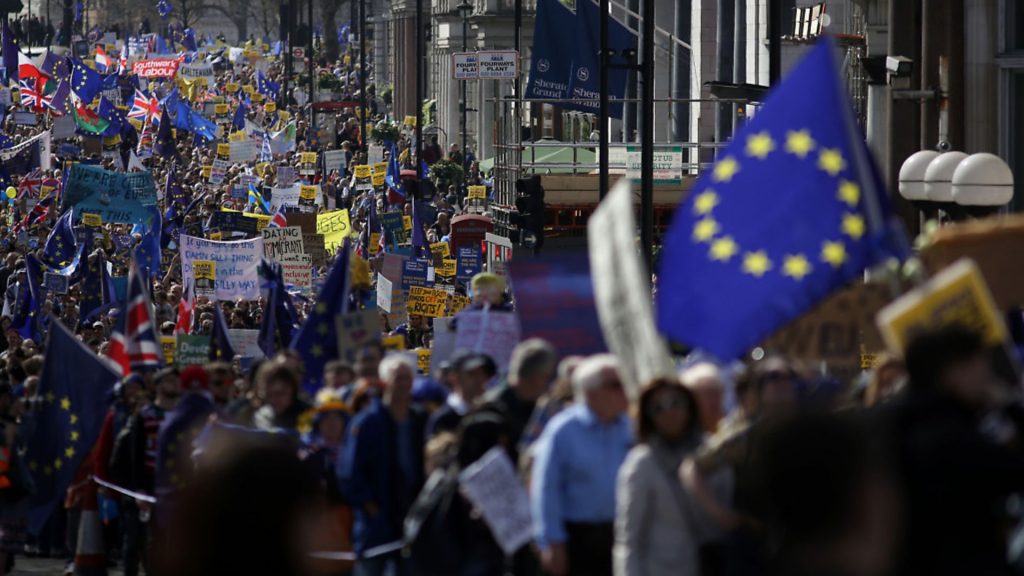
Here was one of the moments when one of the two great post-imperial fissures first took shape. In the 50s consensual Tories, who had grasped why they were ejected so brutally in 1945, accepted the social democratic architecture of Attlee’s welfare state in health, education and a decent safety net for the poorest. They acknowledged a role for trades unions in a tripartite world where wealth would be more fairly shared. They helped unwind the empire – up to and including white Rhodesia’s transformation into Zimbabwe in 1980. In return, Labour in office was a pillar of NATO and the UN, America’s most reliable ally, fiercely anti-communist, outward-looking, eager to ‘punch above its weight’ despite shrinking economic and military clout.
Not all thoughtful Britons shared this stance. The old imperial right and ‘Empire Loyalists’ – still being ejected from Tory conferences into the 1980s – resented America’s usurpation of their hegemonic status. They were joined by cultural conservatives and paternalists, scornful of cruder, more dynamic forms of capitalism and by the sheer materialistic abundance of post-war American life. Some of Enoch Powell’s prejudices were shared for different reasons on the left, both Marxist and patrician. For some, US imperial intervention around the world was far more pernicious than the Soviet empire of the Warsaw Pact or Kremlin meddling elsewhere. America’s domestic racism before the Civil Rights Acts was deemed more inhumane than Stalin’s gulags or Mao’s mass famines: they may not have happened anyway, certainly not without good reason, they told each other.
Jeremy Corbyn, an earnest young left wing idealist from the provincial middle class, was raised in this tradition, a dogged street campaigner for peace, a champion of perceived underdogs, always keener to criticise American folly or brutality than the excesses of its Cold War rival or the friends of the friends of terrorism. Such activists had long been a significant part of the wider Labour family, its smaller left wing critics, the micro-parties of feuding Trotskyites and Maoists, plus the local branch offices of Moscow-dominated communism. But they rarely held positions of influence for long, if at all. The block votes of down-to-earth trades unions saw to that. Occasionally, a Labour conference would back unilateral nuclear disarmament or the nationalisation of key industrial companies. Electoral gravity or the union bosses would pull them back.
But the second of the great post-imperial fissures gradually changed that: the rise of Thatcherite free market economics in tandem with Reaganomics in the US. The European mixed model economies had bounced back from wartime destruction faster and better than Britain’s with its ‘we won the war’ self regard. For Macmillan, as for younger politicians like Harold Wilson and Edward Heath, for disciples like Michael Heseltine and Ken Clarke, for Labour’s John Smith and (eventually) Neil Kinnock, for Blair and Brown, Europe was a moderniser’s project – regulated market capitalism in a broadly liberal social setting. After Labour reversed Hugh Gaitskell’s enmity to Europe, in 1967 Wilson tried but failed in Britain’s second bid to join the EEC, vetoed by de Gaulle as a US Trojan Horse, as Macmillan had been in 1963.
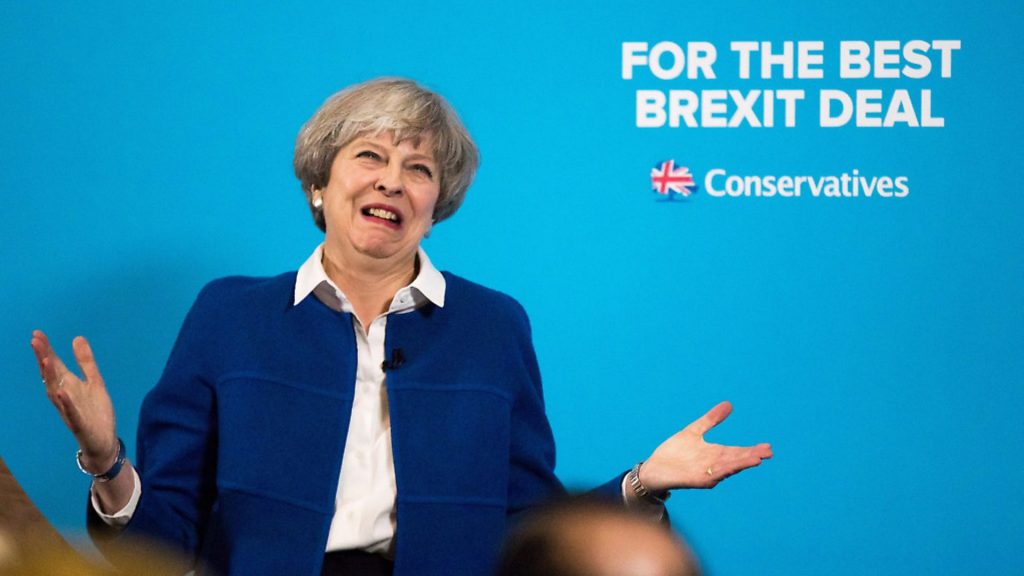
In 1973 Heath succeeded, but was not the kind of politician capable of winning heart-felt public assent. From the start Europe was seen as a supra-national plot to deprive Britain of its ancient liberties and its much-loved, pork fat ice cream. On the Bennite left, with young Jeremy Corbyn in tow, it was a capitalist ramp, designed to destroy workers new-found affluence. To the right it was wishy-washy Rhineland corporatism and intrusive French bureaucracy. In the militant 1970s, union strikes, IRA bombs and retired colonels plotting coups in the Home Counties, first Heath, then the Wilson/Callaghan minority governments delivered social progress in return for legal constraints on union power: equality, economic and social, including women’s and ethnic minority rights, reached new heights. But the disruption included an IMF bail-out and culminated in the 1978-79 ‘winter of discontent’ as unions railed against pay restraint in an era when inflation touched 25% a year.
The predictable outcome was Margaret Thatcher’s market revolution: privatisation, market forces, sharp curbs on union power, ‘loadsamoney’ consumerism and the uninhibited end to cap-doffing deference championed by Rupert Murdoch’s chippy Sun. In tandem with changes in the US – Britain always more susceptible than mainland Western Europe – Thatcherism suddenly offered a rival template for ‘modernisation’, one which produced some impressive early results alongside the destruction of older industries and consequent social distress. North Sea oil helped.
The dividing lines which culminated in the 2014-17 Battle of Brexit were now taking shape. Starting out as a pro-European and the prime minister who signed the integrating Single European Act in 1986, Thatcher ended up as an ever-sharper critic, at the very moment when Labour headed the opposite way in favour of the ‘social’ Europe of Jacques Delors. Just as Macmillan had embraced Attlee’s post-war settlement, the one Thatcher half-demolished, so Tony Blair and Gordon Brown won power by accepting the broad outlines of Thatcher’s market-facing reforms while promising to humanise and moderate their cruder effects. ‘Social justice and economic efficiency,’ as their mentor, John Smith, had said.
If that was how the mainstreams of both major parties continued to rule Britain in the first decades of the 21st century it was not a settlement accepted by the outer wings of their own parties. Whether they posed as nostalgic 1950s imperialists, as Little Englanders or as Global Brits 2.0, the Tory Right remained hooked on varying notions of ‘sovereignty’ despite the fast-growing web of inter-dependence fostered by globalisation and tech. On the left, voters who had lost their job security, and blamed immigrants rather than the tech revolution, were drawn back to old statist remedies as the magic of globalisation threw up greater inequality without much to show for it in Doncaster or Burnley.
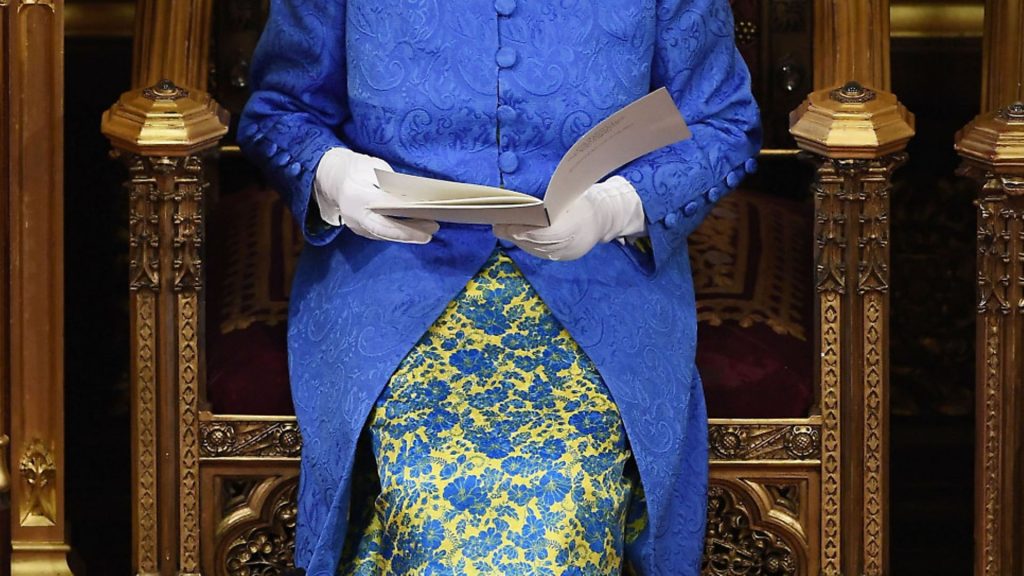
As in other countries with similar grievances, the ‘political elite’ and the ‘corrupt Establishment’ became the target of populist attacks from both left and right. It was no one’s fault that China was back in business. Iraq and the financial crisis were definitely our fault, condemned by left-wing socialists and right-wing free market theorists alike. Why did few if any of the miscreants ever go to jail, they asked? Amid tangible successes of assorted governments the public mood soured.
The stage was thus set for the series of miscalculations and suspicions that culminated in the Year of Brexit. New Labour fell when Gordon Brown’s ‘clunking great fist’ proved more of a liability than an asset and Tony Blair’s money-making machine helped his critics, Labour as well as Tory, trash his legacy. The Cameron-Clegg coalition of tall public schoolboys alienated voter good will by not proving as ‘all in it together’ over austerity as promised on the tin. Ed Miliband tried to combine wholesome reform of cowboy capitalism with realism towards a world fast tilting towards Asia. Cameron conceded a referendum to the SNP, whose post-imperial, anti-Thatcher panacea was independence, and narrowly won it. Dave the Appeaser then risked the same offer to his europhobic wing and defectors to UKIP’s two-faced nationalism, promising free market opportunities and social protection. No 10 must have hoped a new coalition with the Lib Dems would duck it.
As one of ‘Thatcher’s children’, Cameron was a gut eurosceptic and his late conversion was too late to neutralise decades of Fleet St scapegoating. In his prime, Blair – the most pro-EU premier since Heath – had wasted little political capital on promoting it. Lifelong Brexiteer Corbyn could hardly be blamed more than them for staying in bed and his young Pied Piper following decided not to blame him either. When Cameron and Osborne’s dire predictions of economic crisis failed to materialise after the Brexit vote, the winners felt both vindicated and emboldened. It would be OK, no Brexit cliff, all cake and eating it.
Too late to protest that the Brexit damage would be a slow burn. Voters went on a fresh credit splurge, also unpredicted. Was it optimism or fear that a falling pound would push up inflation faster than exports. As summer turned to autumn the brighter economic news was guaranteed bigger headlines than the contingency plans of banks and worsening trade balances or weak tax revenues. At 0.25% since August interest rates stayed at rock bottom, but stock markets buzzed – despite the looming rise of Trumpismo. Hadn’t Team GB become an Olympic superpower, second in the Rio medals table?
In September, May was emboldened to promote grammar schools and give a delayed OK to the Franco-Chinese nuclear power station at Hinkley Point. Corbyn saw off Owen Smith’s ill-judged leadership challenge. In October she toughened her Brexit stance and approved a third runway at Heathrow. In November, the month when Wimbledon champion, Andy Murray, became World tennis No 1 and Paul Nuttall succeeded Nigel Farage, now a Trump groupie, as UKIP leader, English nationalist Thomas Mair was convicted of murdering Jo Cox MP. May sailed quietly on, basking in high public approval ratings and an historic lead over Corbyn’s embattled Labour opposition.
Apart from a budget tax U-turn, a spot of hand-holding with President Trump and the lack of a coherent Brexit strategy, what could possibly go wrong? On April 18 May over-reached herself and unexpectedly called a snap election which everyone proceeded to lose one way or another. May might surprise the unabashed pundits by hanging on for five years as Wilson and Callaghan managed to do in the unpromising 1970s. Corbyn wants her to stand aside and let him have a go, which suggests the Labour leader has not read his own manifesto. Britain improbably bounced back from an existential crisis in 1940. But in terms of governability, economic fragility and social cohesion in an age of austerity and home-grown terrorism, 2017 is a tough one. This time the enemy is within and, in our different ways, we are all it.









